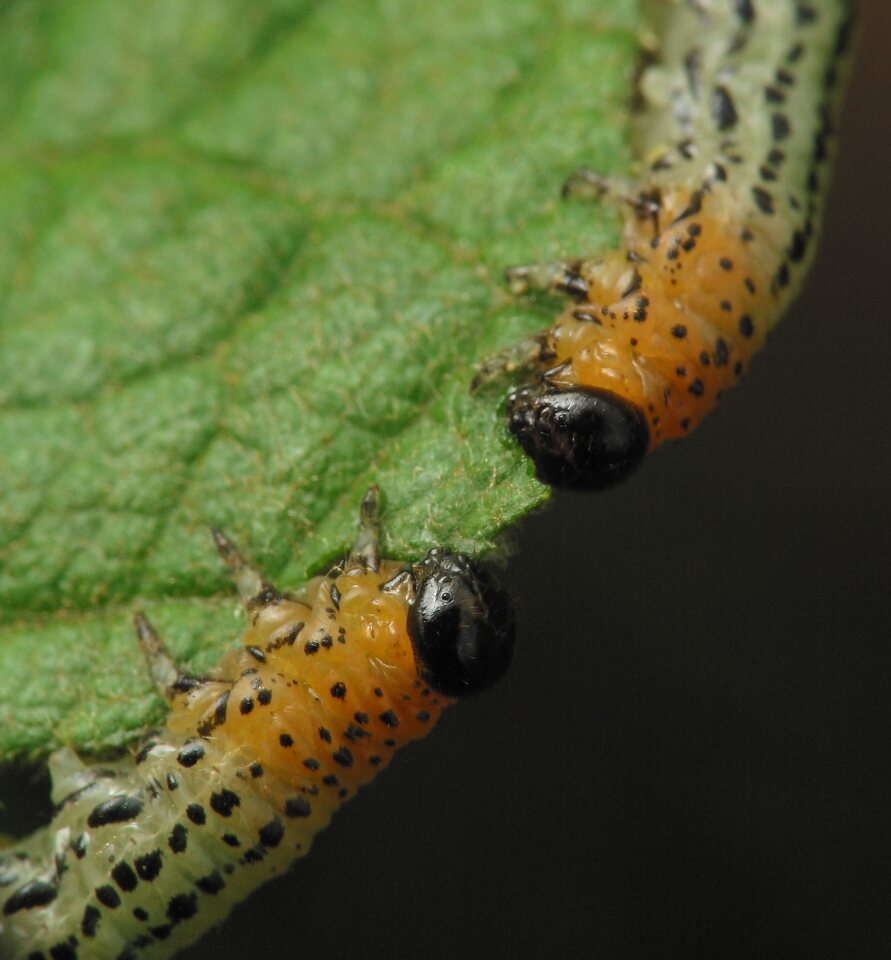
Nematus miliaris larva · pjūklelis, lerva
- Euura miliaris, Nematus capreae, Pteronidea capreae
- brzęczak towarzyski
- sawflies.org.uk/euura-miliaris
- gardensafari.nl/english/picpages/nematus_miliaris.htm
- api.flickr.com/photos/john_petyt/albums/72157716993291671
- gbif.org/species/4491233
It is found mainly on Sallow. It is however sometimes reported feeding on Poplar. The larvae are green with a pattern of black dots and stripes. There is a yellowish band behind the head and the tail is yellowish too. In older larvae the yellow spreads over several segments. The head is black. They live together, often in great numbers. The leaves of the host plant are eaten from the sides on which the larvae sit. The larvae of Nematus miliaris also assume the well known S-position when they feel threatened. Hundreds of animals, if not thousands can sometimes be seen on one tree alone. The larvae pupate underground. Usually there are two broods a year. The adults are on the wing in May and June and again, after a short break, in July and August. The eggs are deposited in the skin of twigs of the woodplant in two bunches, shaped as rings around the twig.
‥- tags
- larva
- albums
- Insecta · vabzdžiai / Hymenoptera · plėviasparniai / Tenthredinidae · tikrieji pjūkleliai / Nematus miliaris · pjūklelis
- Insecta · vabzdžiai / Hymenoptera · plėviasparniai / Tenthredinidae · tikrieji pjūkleliai / ~ Tenthredinidae larvae · tikrųjų pjūklelių lervos
- Insecta · vabzdžiai / Hymenoptera · plėviasparniai / ~ Hymenoptera larvae · plėviasparnių lervos
0 comments
Add a comment